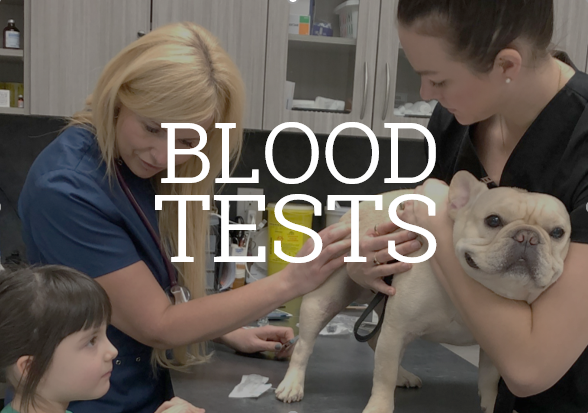The other day I was speaking to one of our long-term dog parents about her elderly cocker spaniel, who happens to be deaf, partially blind, and has glaucoma.
“I know I was resistant to getting that blood work done a couple of months ago,” she told me. “But you know, I’m so glad I did. It’s given me such peace of mind. It makes such a big difference, knowing that she’s basically healthy for her age and that I’m not going to get surprised by some condition that went unnoticed for ages.”
What are canine blood tests for?
While there are a wide range of canine blood tests, a CBC (complete blood count) examines the white blood cells, red blood cells and platelets, including the health and functionality of those cells. As in blood tests for humans, this information gives your vet information about your dog’s immune system and oxygen carrying capacity.
Blood tests can also examine:
- Electrolytes
- Proteins
- Glucose
- Endocrine levels
- Digestive enzymes
- Cholesterol
These chemicals help the vet identify potential issues with organs and body systems: A test for blood glucose, for example, can provide information about whether a dog has diabetes; a blood test showing a deficiency in albumin may indicate a liver problem.
When are canine blood tests a good idea?
We know that cost is almost always a concern when it comes to veterinary treatments like blood work. And when a veterinarian recommends a specific blood test, it’s not unusual to wonder whether it’s really necessary.
Developing a long-term relationship with a vet you like can make a big difference: If you trust your pet’s healthcare provider, you don’t have to wonder whether they’re making the right recommendations about tests.
But there are also some situations in which blood tests are generally a good idea:
In the first veterinary visit. If your new dog is a puppy, blood work at this point sets a good baseline; if it’s an adult rescue where the animal’s history isn’t known, blood work can identify any potential issues.
Before starting new medication. We recommended blood work for the 13-year-old cocker spaniel largely because she was starting medication for glaucoma and arthritis, and we wanted to make sure her kidneys and liver would tolerate the meds.
Prior to surgery. Your vet will almost always require blood tests prior to any kind of surgery, including spay/neuter. Again, this has a lot to do with determining the tolerance for medication (including anaesthesia) and risks for older dogs.
When a dog seems ‘off’. Dogs can’t tell us exactly how they’re feeling. We may notice that a beloved pet is acting differently or ‘strangely’, and have a gut feeling that something’s not right, but have no idea whether it’s arthritis or kidney failure. Blood tests can help to pinpoint the problem more quickly and effectively than waiting it out or experimenting with remedies.
During annual exams – especially for older dogs. Ideally, every dog would get a CBC at every annual checkup, along with a urinalysis and fecal exam. Together, those three tests provide a pretty complete picture of a dog’s health, and having one every year allows us to track changes over time. (That’s the main reason we’ve established our preventative care plans: To make it easier to provide this continuity of care.)
Younger dogs who start out healthy, eat right and get plenty of exercise will probably be okay even if they don’t get blood work done every 12 months. However, we do recommend that once your dog is in the older or ‘geriatric’ years (which will vary depending on their breed), they get blood tests done at least once a year. Older dogs are more susceptible to illnesses like kidney disease or insulin resistance that are far more treatable when they’re caught early.
Don’t hesitate to ask questions
The more you know about what a blood test can tell you, the better you’ll feel when you’re making decisions about whether or not to get blood work for your pet. So don’t hesitate to ask your veterinarian for more information (or get in touch with our office)!

